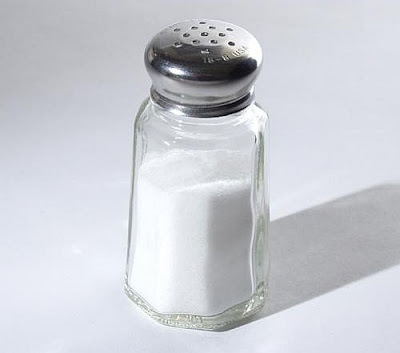How Much Salt is Safe?
Salt is essential to human life and the functioning of the human body, which is why we could never live without it. This is also why in the days of antiquity, salt could be worth more than gold, since you can't preserve meats with gold, but could easily do so with salt. This was of extreme importance in the days when we lived without refrigeration and modern preservatives.
The word salt is thought to come from the Latin sal, meaning salt. The English word "salary", which is similar in several European languages, is linked to the fact that salt was once a currency (legal tender) in many parts of the world.
Salt's importance comes from much more than just making food taste good, however. Salt is essential to our good health. It's in our blood and all the other fluids in our bodies. Without it, our nerves and our muscles wouldn't work properly, our stomachs wouldn't be able to break down food to give us energy, and our blood would have trouble carrying carbon dioxide to our lungs to be exhaled.
Why should I have Salt?
Here are some of important functions of salt in the body:
- Salt is a strong anti-stress element for the body.
- Salt is used for extracting excess acidity from inside the cells, particularly brain cells.
- Salt is vital for the kidneys to clear excess acidity, passing it into the urine. Without sufficient salt in the body, the body will become more and more acidic.
- Salt is essential in the treatment of emotional and affective disorders.
- Salt is a needed element in the treatment of diabetics. It helps balance the sugar levels in the blood and reduces the need for insulin in those who have to inject the chemical to regulate their blood sugar levels. Water and salt reduce the extent of secondary damage associated with diabetes.
- Salt aids in communication and information-processing of nerve cells the entire time that the brain cells work, from the moment of conception to death.
- Salt is important for the absorption of food particles through the intestinal tract.
- Salt is used for clearing the lungs of mucous plugs and sticky phlegm, particularly in asthma, emphysema and cystic fibrosis sufferers.
- Salt on the tongue will stop persistent dry coughs; water will enhance this effect.
- Salt is vital for clearing up catarrh and sinus congestion.
- Salt is vital for the prevention of gout and gouty arthritis.
- Salt is essential for the prevention of muscle cramps.
- Salt is vital to preventing excess saliva production to the point that it flows out of the mouth during sleep. Needing to constantly mop up excess saliva indicates a salt shortage.
How much salt should I have?
Based on the requirements of a human body, an average adult requires an intake of 4.2g salt per day. The minimum requirement is 1.5g. The government recommends an intake of 6g salt per day for an adult and less for children. At the moment the average adult intake is 10-12g. Pro-salt campaigners argue that any healthy body will process just the right amount of salt it needs and the kidneys will dispose of any surplus.
What happens if I have excess salt?
Studies have indicated that too much salt consumption is linked to health problems, such as hypertension (high blood pressure) and osteoporosis. If you suffer from hypertension you would benefit from consuming less salt. Very young children, very elderly people, as well as people with kidney disease cannot excrete sodium and regulate body fluid efficiently.
What should I do to control salt?
- Choose fresh foods, prepared without salt or salty seasonings most of the time.
- Flavor foods with lemon, vinegar, garlic, onion (not garlic or onion salt), herbs and spices.
- Try making your own soups and pasta sauces and cut out or limit the salt.
- Omit the salt in baking and when cooking vegetables and pasta.
- Compare food labels and choose products with the lower % Daily Value for sodium.
- Look for unsalted nuts, popcorn and crackers, if you choose these for snacks.
- Try the sodium-reduced alternative to your usual products when available.
- Limit salty pickles, relishes, soy sauce, salsa, hot sauce, barbecue sauce, ketchup and other similar sauces.
- Enjoy foods without adding salt at the table.
Many people feel that foods taste better with salt or large quantities of salt, but it is only because their taste buds have grown accustomed to this taste. Therefore, it is difficult to avoid the abuse of salt but it is important to control its consumption.
